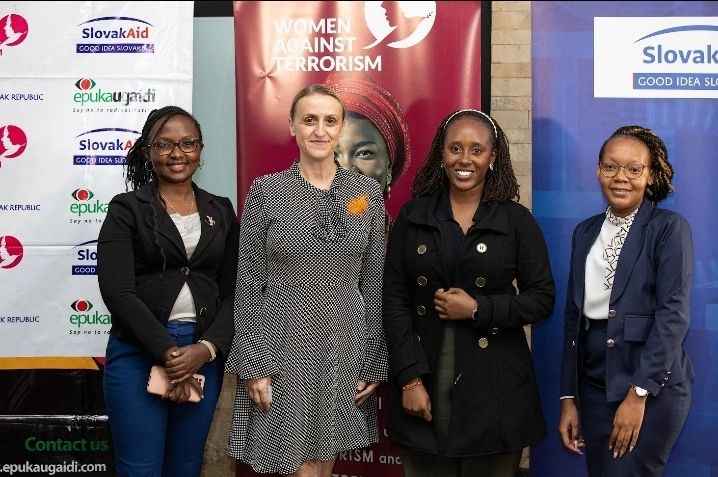By Linda Gichohi
As part of the 16 Days of Activism campaign, the Embassy of the Slovak Republic and Epuka Ugaidi organised a high-level dialogue on “Bridging Voices for ASAL Women.”
I was privileged to represent KICTANet in this crucial exchange, along with a diverse panel and audience.
The discussion explored the complex challenges faced by women in Arid and Semi-Arid Lands (ASAL). Among the panelists included Ms Charlene Ruto, in the presence of H.E Ambassador Katarina
The dialogue covered topics such as governance, peace, security, climate resilience, countering terrorism, sustainability, and gender-based violence. These issues highlighted the multiple dimensions and the remarkable strength of ASAL women.
Dr. Vladislava Gubalova from GLOBSEC spoke eloquently about the transformative role of technology for ASAL women. She emphasised the need for accessible digital literacy education and advocated for technology as a key enabler for ASAL women to flourish. Her message struck a chord with the audience.
Some of the recommendations that resonated with KICTANet’s mission and vision were:
- Tailored Digital Literacy Emphasis: Swift action is imperative, directing our focus towards personalized digital literacy initiatives designed to tackle the unique challenges faced by ASAL women.
- Unleash the power of technology in education by implementing platforms that break down barriers, providing uniform learning opportunities for all.
- Confront infrastructure challenges head-on, striving to make technology more accessible and economical for ASAL women, ensuring they can harness its benefits.
- Foster empowerment through a community-centric lens, involving local communities in the integration of technology aligned with cultural contexts.
In the convergence of technology and broader themes, our unwavering dedication to these recommendations charts a course for ASAL women towards an empowered future.
Notably, this commitment is amplified by KICTANet, a multi-stakeholder think tank for ICT policy and regulation, standing as a catalyst for change and progress through its pillars and programs.
In a world that is increasingly digital, ensuring that no woman is left behind requires a collective commitment to breaking down barriers and providing the tools for empowerment. The journey towards gender equality in ASAL regions begins with the recognition that technology is a powerful ally in amplifying the voices of women and bridging the digital gender gap.
The dialogue was a powerful reminder of the importance of amplifying the voices of ASAL women, recognising their diverse realities, and creating opportunities for progress.
By integrating aspects of governance, security, and technology, the event envisioned a future where ASAL women are empowered, connected, and ready to take their rightful place on the world stage.
Linda Gichohi is a lawyer, a KICTANet Legal Fellow, and a Gender Program Assistant. She has an interest in women’s digital rights and access to justice for technology-facilitated violence.
![]()




